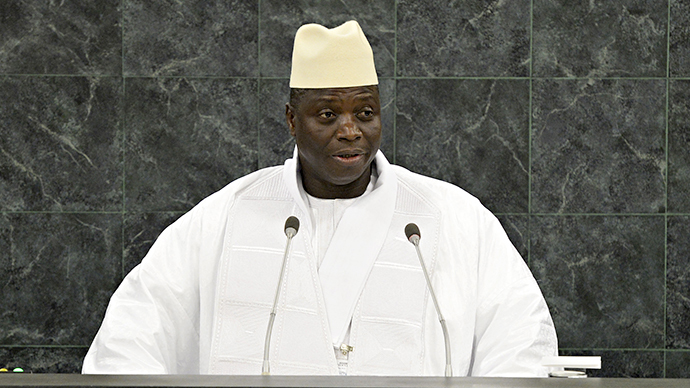No to ‘extension of colonialism’: Gambia quits Commonwealth

Gambia announced it is immediately leaving the Commonwealth of Nations, saying it will not be part of an “institution that represents an extension of colonialism.”
"The general public is hereby informed that the government of
the Gambia has left the Commonwealth of Nations with immediate
effect," the government said in a statement.
The Commonwealth is made up of over 50 countries, most of which
are former territories of the British Empire. Gambia is located
in western Africa and enveloped by Senegal.
"[The] government has withdrawn its membership of the British
Commonwealth and decided that the Gambia will never be a member
of any neo-colonial institution and will never be a party to any
institution that represents an extension of colonialism."
Government officials did not respond to press inquires Wednesday,
Reuters reported.
However, one anonymous foreign ministry official told AFP the
decision was made after the government disagreed with a 2012
proposal by the Commonwealth to create commissions in the Gambian
capital of Banjul to address human rights, media rights, and
corruption. Following the proposal, Commonwealth
Secretary-General Kamalesh Sharma met with Gambian President
Yahya Jammeh and other top officials.
Jammeh has ruled Gambia - Africa’s smallest mainland country -
since 1994, and has been often accused of human rights abuses,
including unlawful detentions, media intimidation, and
discrimination against minorities in the country.
Since the mid-fifteenth century, the Portuguese, French, and
British empires competed for colonial supremacy in Gambia. It is
estimated that well over three million people from the Gambia
area were sold into slavery during the transatlantic slave trade.
Present Gambian boundaries were formed in 1889 as the area became
a British Crown Colony known as British Gambia. Gambia formed its
own executive and legislative councils in 1901, and on February
18, 1965, Gambia gained independence as a constitutional monarchy
within the Commonwealth of Nations.












